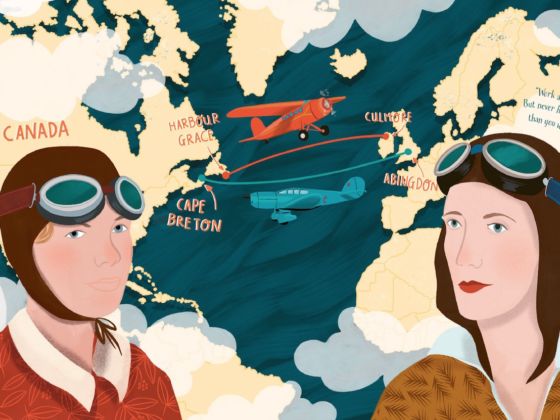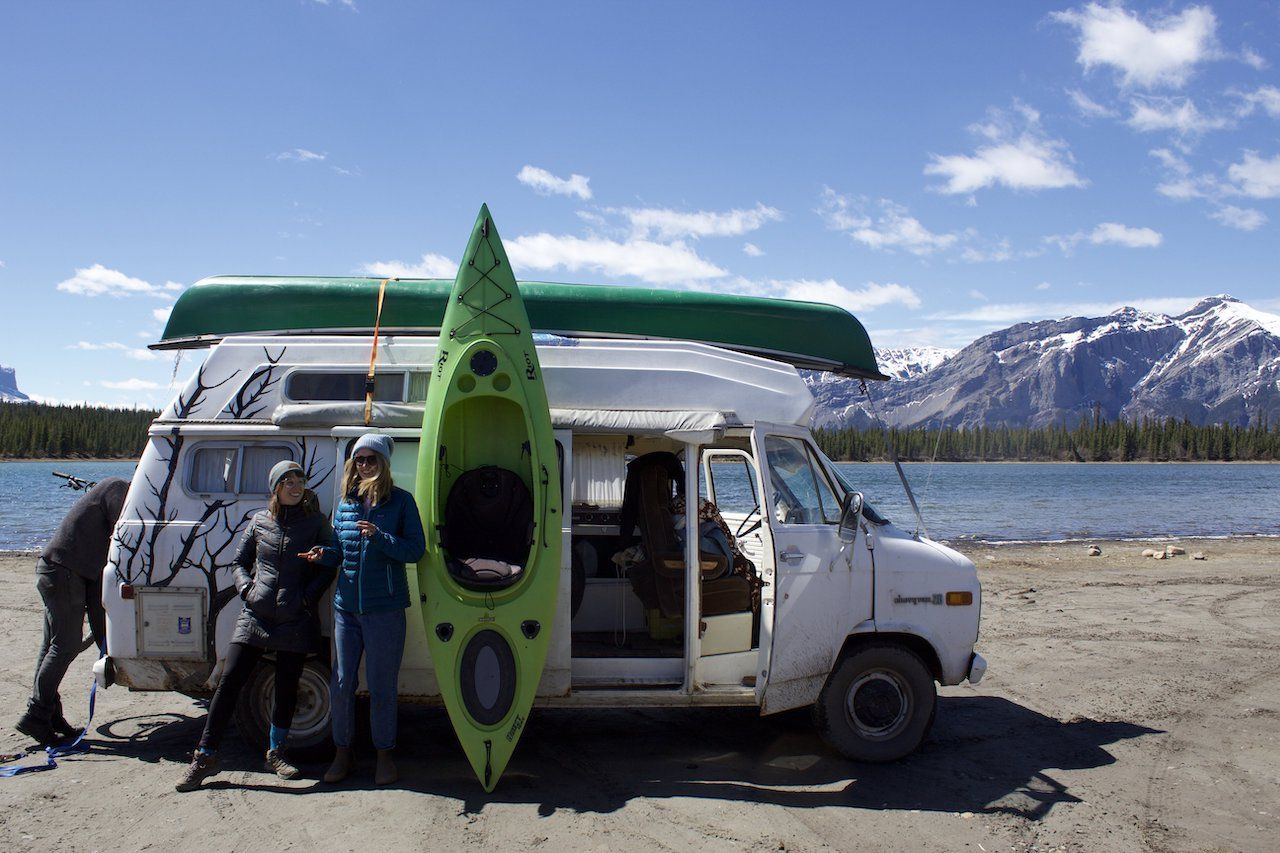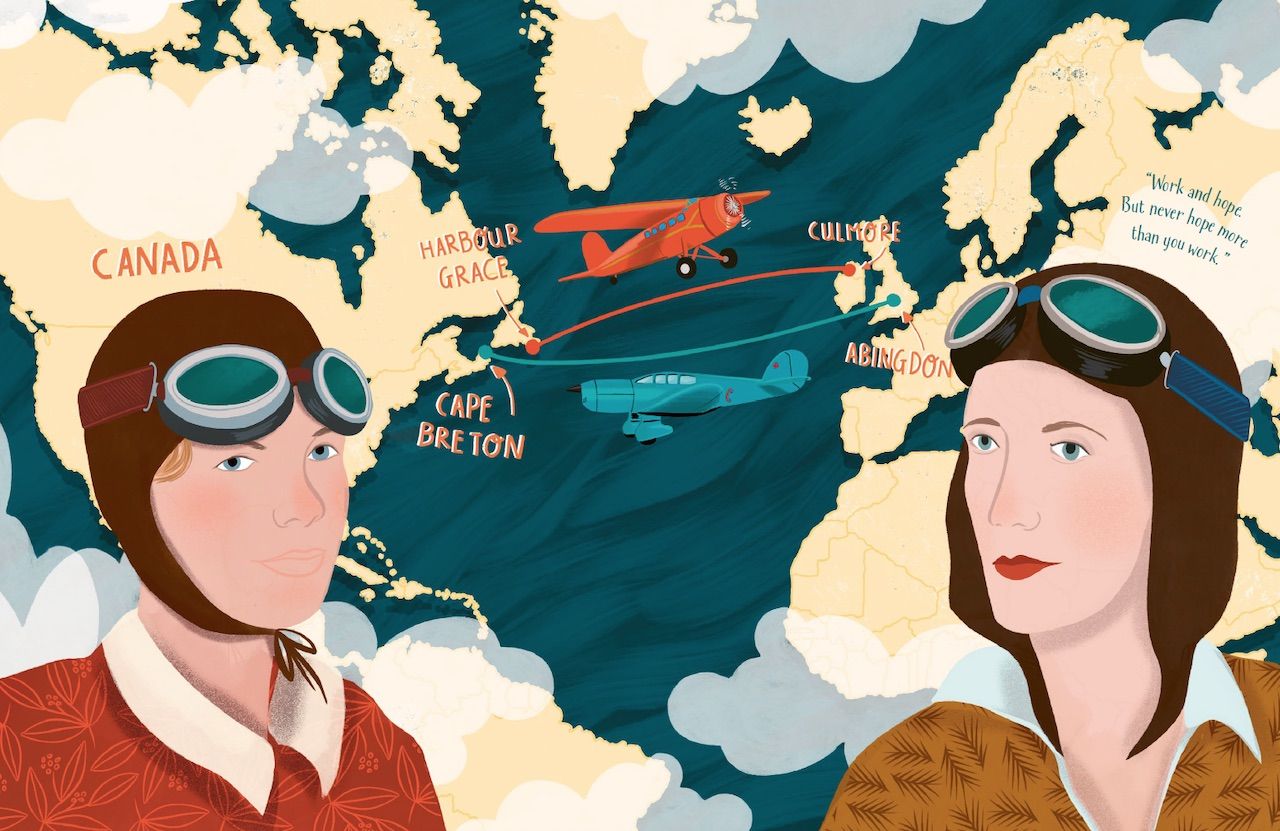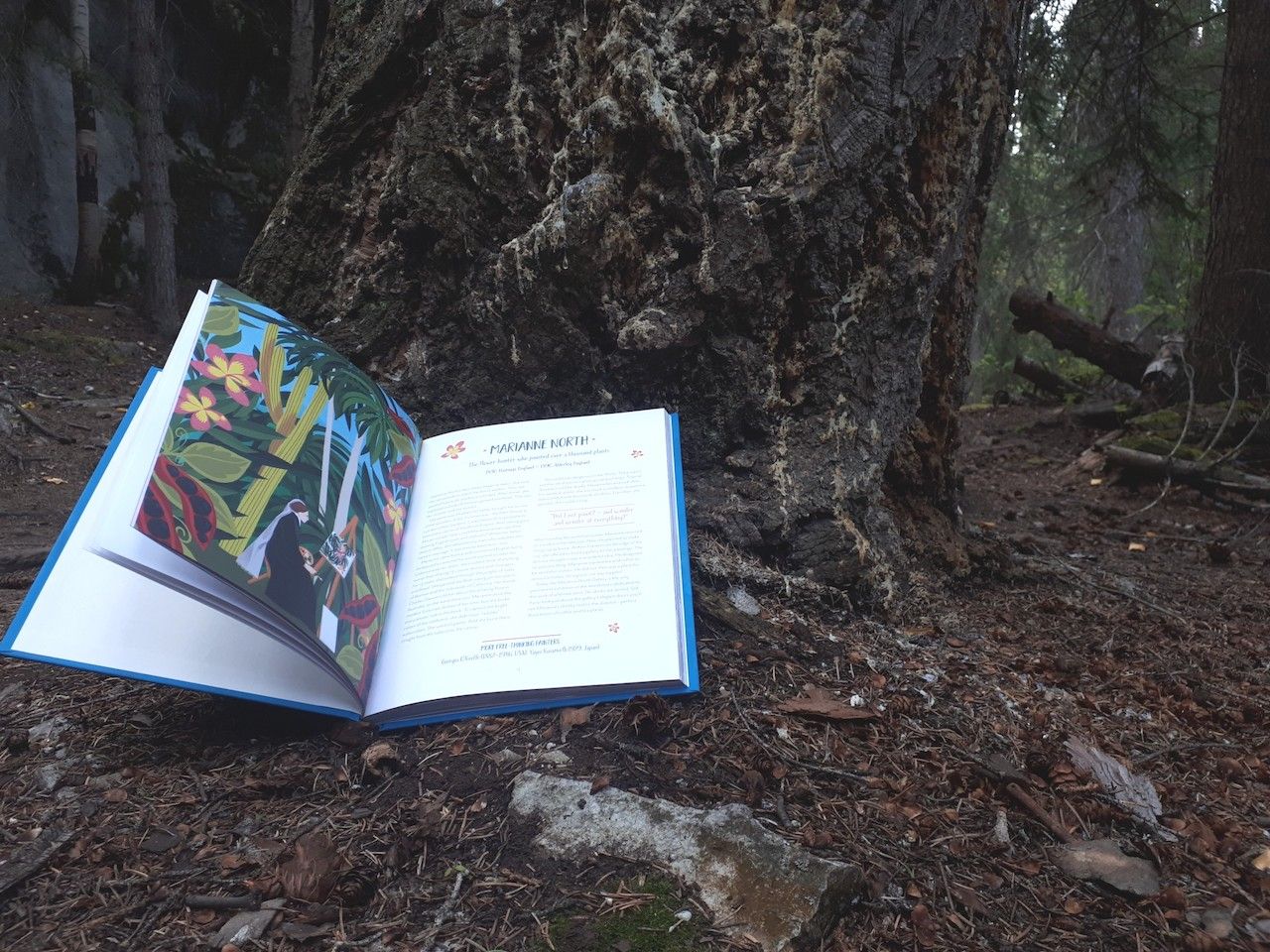Women have always been globetrotting badasses. The fact that you may only be able to recall the names of Amelia Earhart, Sacagawea, and a cartoon Mulan has nothing to do with history and all to do with its authors — they seem to have conveniently left out the stories of women climbing Everest, riding sharks, defeating ancient Rome, and even living underwater. However, a Scottish writer is out to make sure young women hear those stories.
The Girl Who Rode a Shark: And Other Stories of Daring Women, written by Ailsa Ross and illustrated by Amy Blackwell, tells the story of 52 women throughout history — from 231 BC to present-day teenagers — and their adventures beyond limitations. Because of the hand wrapped so tightly around history’s pen, these globetrotting women have done something else in their adventures, something far more important than an individual’s journey itself: They’ve changed the world. It just took longer for the world to notice.




